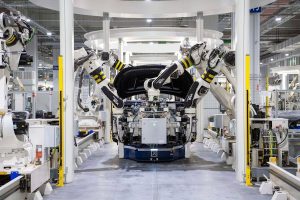FLOSUM Explaining Various Salesforce Roles, Responsibilities, and Skills

Being the topmost CRM across the globe, Salesforce is now largely being adopted by a number of frontline businesses. Every Salesforce project consists of various roles that expert professionals must handle in the same niche to ensure success. While thinking of launching a new Salesforce project, it is easy to get confused whether you need a Salesforce Developer or Salesforce Administrator. It is ideal to have an insight into various Salesforce roles and responsibilities of each. In this article, we will discuss some leading Salesforce roles for this purpose.
#1. Salesforce Administrator
Salesforce Admin is one designation that is often referred in all Salesforce projects. Salesforce Administrator is the one who adds value to the business by automating complex business procedures and monitor all activities on the platform. A Salesforce admin is ideally a subject matter expert of Salesforce who also has excellent enterprise process knowledge pertaining to the specific organization where the project is implemented.
The role of a Salesforce Administrator
These are the major responsibilities of a Salesforce Admin to be accomplished on a daily basis:
- Setting up new SF users.
- Maintaining users and setting/changing privileges from time to time.
- Setting up the workflow rules.
- Handling organization-wide defaults.
- Customization of the Salesforce platform, including the page layouts, fields, etc.
- Devising role hierarchy.
- Setting permissions.
- Creating dashboards and reports.
- Data management.
- Security Administration.
- Training the new users on Salesforce use.
- Organizing and managing requirements from processes and stakeholders.
Suppose you are trying to get a good Salesforce Admin. In that case, the skills you need to look for are excellent communication and interpersonal skills as they need to deal with people of various levels from top to bottom every time. An ideal Salesforce Admin needs to be patient and willing to understand the customer problems. The administrator should be motivating and influential too to deal with users across the organization. Not to mention technical troubleshooting skills and system savviness. The person should also be solution-oriented and a quick learner.
#2. Business Analyst
A Salesforce Business Analyst role is more data-led when compared to that of a Salesforce Admin. Sometimes, a Salesforce Business Admin can be the next level of growth for an admin. An ideal Salesforce Business Analyst must possess a fair degree of experience in end-to-end implementation of Salesforce and in-depth knowledge of its handling process. SF BAs need to be fully functional and work hands-on with Salesforce Administrators and other teams.
Salesforce Business Analyst needs to gather all the business requirements and related information and also analyze the same. They have to ultimately convert these data into effective Salesforce insights and solutions that can improve process effectiveness and ultimately boost revenue generation. As pointed out by flosum, they usually monitor, manage, run, and analyze all salesforce implementations.
Responsibilities of a Salesforce Business Analyst
- Documenting requirements and information related to Salesforce implementation projects.
- Developing roadmaps for projects.
- Driving the SF projects forward.
- Liaising with the stakeholders, managers, and users.
- Analyzing the effectiveness of Salesforce implementations.
- Applying the most practice methodologies.
- Solving issues and testing for faults.
A business analyst should have an analytical mindset and need to handle multiple data sources in an investigative manner. They have to explore the data using analytical methodologies and provide actionable insights. Analysts should also be quick decision-makers by being able to make actionable recommendations for projects based on data-centered findings. The person who takes up the role of an SF BA should also be willing to take the initiative and handle all the roadblocks confidently.
#3. Salesforce Developer
As we can assume, the developer is a coding expert who is also responsible for API integration. Salesforce Developers should create workflows, APEX development, triggers, validation rules, and handle AppExchange and other application integrations. An SF developer may have programming background in other languages, such as Java, and in-depth knowledge of Salesforce. Such a person is also high in demand in the SF ecosystem as an SME>
Role of an SF Developer
A Salesforce developer may typically be involved in
- Creation of complex workflows and triggers.
- Doing APEX development.
- Visualforce page development.
- Development of Lightning components.
- Integration with other functional and existing legacy systems.
- Testing and implementation of applications.
- Proper maintenance of SF DevOps platforms.
- Coding and debugging.
- Making technical documents for the projects.
- Data review.
- Issuing technical plans and solutions to the business teams.
- Devising and implementing solutions for addressing company-wide issues and to make the process run more efficiently.
- Reviewing the custom-developed codes and making needed adjustments.
An SF developer should be curious and persistent. These professionals may be able to thrive by solving problems and should be able to automate any repetitive tasks. SF developers should also possess attention to minute details and should be able to write clean codes which can stand the test of time. SF Developers should be able to work persistently by meeting deadlines.
Along with these three key Salesforce roles, there are a few other frontlines roles, too, as below.
Salesforce Functional Consultant: The role is more or less similar to that of the Salesforce Business Analyst role, but it requires more hands-on experience and a better understanding of the SF platform. These consultants work directly on client projects, and they act as SF champions at the client end for achieving their implementation and project goals.
Salesforce Platform Manager: Salesforce Manager role is confusing and may vary slightly from project to project. There are two major variants of the Platform Manager role in the Salesforce market. The first variant performs all duties of Salesforce Administrator and takes a more strategic approach to the platform by leading small teams. Another type of Platform Managers are those who are less hands-on but more strategically involved in Salesforce projects. They usually manage bigger teams that further consist of many Salesforce Developers, Administrators, Business Analysts, etc.
Recommended Reading :
- Salesforce Developers Spring Cleaning Guide
- 6 Ways of Designing your Business can Make a Difference
- 9 Habits of Highly Successful Software Developers
- All You Need To Know About Microsoft Azure As A Cloud Developer
Along with them, for bigger projects, you may also find a Salesforce Solution Architect, Salesforce Technical Architect, Salesforce Project Manager, etc., for ensuring the smooth run of Salesforce projects.
Author’s Bio:
Walter Moore is a writer and a notable management consultant at FLOSUM and a digital marketing expert. He is an experienced digital marketer who has helped e-commerce businesses in all niches gain with his effective marketing strategies and guidance






